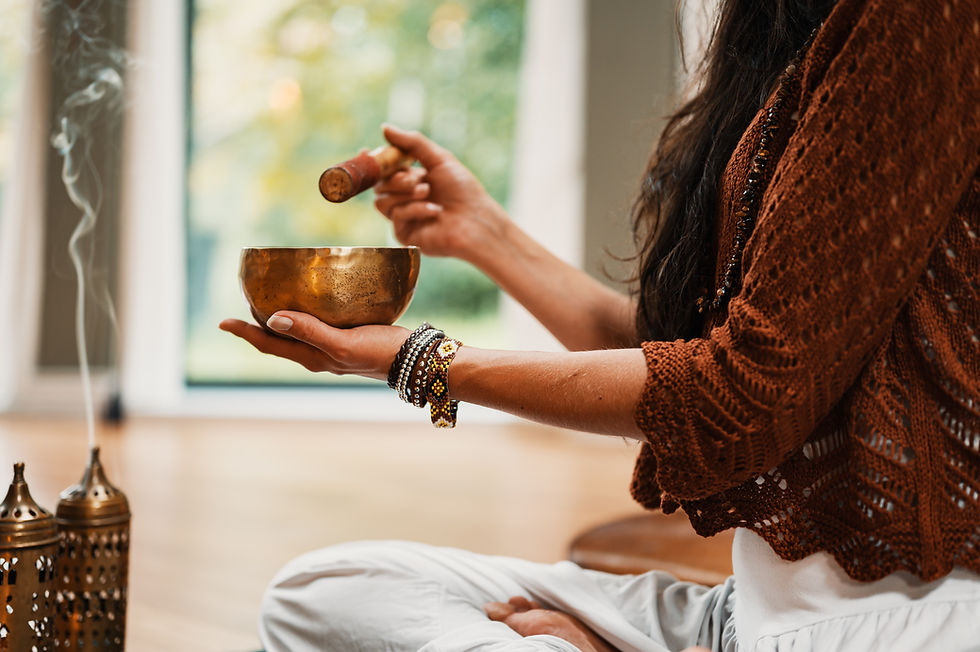The Unique Mental Health Challenges & Strengths of BIPOC Communities
- hakikatbains
- May 6, 2025
- 3 min read
Updated: May 25, 2025
Mental health looks different across cultures. For Black, Indigenous, and People of Color (BIPOC) communities, mental health experiences are often shaped by historical context, systemic barriers, and cultural resilience. While there are unique challenges that impact mental well-being, there are also deep sources of strength that support healing and growth.

At Yes To Therapy, we understand that mental health care must be culturally responsive, acknowledging both the struggles and the powerful resources within BIPOC communities. Let’s explore both sides—challenges that can make mental health care harder to access, and the strengths that make healing possible.
Barriers to Mental Health Support
1. Stigma and Cultural Expectations
Many BIPOC communities have deeply rooted beliefs that mental health struggles should be handled privately or with inner strength. Seeking therapy may be seen as a sign of weakness, especially in cultures that emphasize resilience, self-reliance, or spiritual faith as the main ways to cope.
Example: In some Asian and Latinx cultures, discussing mental health may be viewed as bringing shame to the family, discouraging individuals from seeking professional help.
2. Systemic Inequities and Trauma
Historical and ongoing oppression, racism, and discrimination contribute to racial trauma, which can lead to heightened stress, anxiety, and depression.
These systemic inequities also create barriers to quality mental health care, such as:
-Lack of culturally competent providers
-Underdiagnosis and misdiagnosis of mental health conditions
-Financial and insurance-related obstacles
At Yes To Therapy, we recognize the impact of systemic oppression on mental well-being and offer culturally responsive therapy to affirm the experiences of BIPOC individuals.
3. Lack of Representation in Therapy

It’s hard to open up when you feel like your therapist doesn’t understand your background. Many BIPOC individuals struggle to find therapists who share their cultural identity or understand the nuances of their lived experiences.
Our diverse team of therapists speaks over a dozen languages and is trained to work with clients from various cultural backgrounds.
Cultural Resilience and Healing
Despite these challenges, BIPOC communities hold powerful strengths that support mental wellness. Here are some of the unique ways healing is already embedded within these cultures:
1. Strong Community and Collective Support
Many BIPOC cultures emphasize community care over individualism. This means that healing doesn’t always happen alone—it happens in families, friend groups, religious spaces, and cultural gatherings.
Example: Black communities often practice “healing circles”, where storytelling and shared experiences provide emotional support. Also, many indigenous cultures incorporate ceremonial practices that honor ancestral wisdom and collective healing.
At Yes To Therapy, we recognize the importance of community support and offer family therapy, group therapy, and culturally informed approaches to strengthen these connections.
2. Cultural Practices That Promote Healing

Many traditional practices in BIPOC cultures naturally support mental well-being, even if they aren’t labeled as “therapy.”
Some examples include:
Mindfulness & Meditation – Found in South Asian, Indigenous, and Buddhist traditions
Faith & Spirituality – A central source of strength in Black, Latinx, and many immigrant communities
Music, Dance, & Art – Expressive healing forms deeply rooted in African, Latin American, and Indigenous cultures
3. Generational Resilience
BIPOC communities have long histories of resilience in the face of adversity. The ability to adapt, survive, and thrive is a powerful testament to strength. While intergenerational trauma exists, so does intergenerational wisdom and healing.
Example: Many immigrant families pass down stories of perseverance, reinforcing a sense of strength and identity in younger generations.
Bridging the Gap: Culturally Affirming Therapy

Healing within BIPOC communities means acknowledging the past while building new, affirming ways to care for mental health. Therapy doesn’t have to mean abandoning cultural values—it can blend professional support with cultural strengths to create a healing approach that feels right for you.
At Yes To Therapy, we believe that mental health care should be inclusive, affirming, and tailored to the unique needs of BIPOC clients. Our therapists are trained to provide culturally competent care that recognizes both the barriers and strengths that shape your experience.
You don’t have to navigate this alone. Reach out to YTT to find a therapist who understands and affirms your journey.




Comments